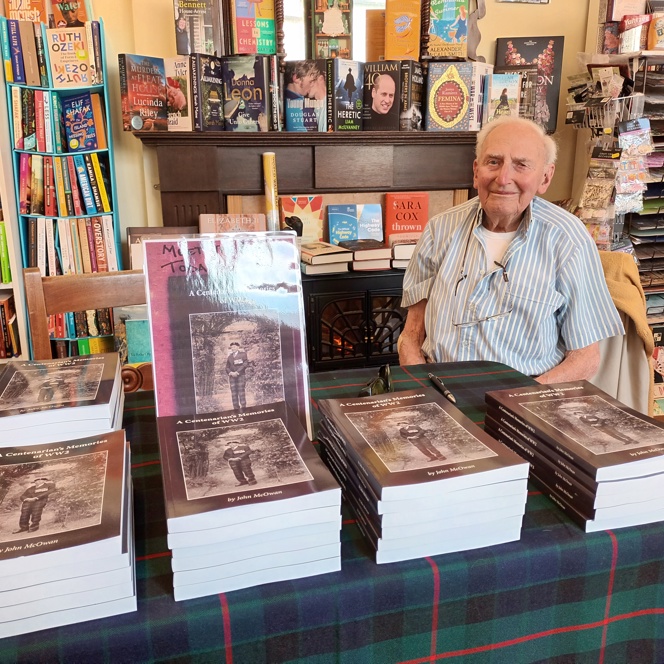John's story: Avoiding mines at Gold Beach

John was an instrument mechanic, maintaining the equipment of the 7th Armoured Division of the famous Desert Rats, when his unit was sent back to England to join the D-Day invasion.
John sadly passed away in November 2024 after he had shared his story with us.
"We were in enclosed camps near Felixstowe and, just prior to the invasion, boarded the landing crafts at Felixstowe and sailed the English Channel overnight.
“The actual destination of the landing was kept very secret, which was why we were in sealed camps before we eventually embarked. The only contact we had was getting rations in, and that sort of thing.
"Some of the troops actually were quite annoyed at the fact that they weren't told where they were going to land, but I wasn't. It was very, very important because we'd been waiting to go on the second front for years. When it did come, of course, we realised we had to get a foothold on D-Day itself."
They laid anchor off the beaches and waited for the order.
“Approximately 150,000 troops actually landed in Normandy. Of course, they couldn't all disembark on the first day, so some of us had to lay to for some time before we could get ashore, which wasn't very comfortable when we were under fire from the Luftwaffe Air Force.
"But it was an epic sight actually, to see so many ships in one area that one had the feeling you could almost walk from one ship to another - there were actually over 1,000 craft in the Channel at that time. And eventually we did embark on what were known as LCTs, or big landing craft.”

As a driver, John had to safely navigate his vehicle up Gold Beach.
"We landed quite safely, although the beach was under fire from snipers and artillery further back in the German lines.
"We had to drive our vehicles off the ramp of the landing crafts up onto the beach in a marked lane. There were lanes laid out that had been cleared of mines, so we had to be careful and keep the vehicles within the lines to get off the beach.
“We managed to get up off the beach without any casualties. The troops had cleared several miles of the enemy, so we were able to get a few miles inland. We ended up at a place called Bayeux until there was a big battle at Falaise."
Listen to John talk about D-Day
Under fire but still an epic sight - how D-Day was for John.
"Wars do no good to anybody. All they leave behind is misery and grief."
Blind veteran
John later wrote about his wartime experiences.
When he first got home after the war, all he wanted was to forget about it. It was the 75th anniversary of D-Day that brought it all back to him. He went back to Normandy with other D-Day veterans and kept a diary of his experience.
When COVID-19 and lockdown came along, he didn't want to feel he had nothing to do. So, at the age of 101, John decided to write about his wartime days, and it turned into a book that was printed - and sold out. John gave part of the proceeds to Blind Veterans UK to say thank you for the support he had received.

"They provided me with a reader which reads books for me. I'm never bored."
Blind veteran
John was inspired to write his memoirs after returning to Normandy in 2019



You can help blind veterans like John.
Without our support, John's recollections may never have been turned into a book as it was one of our volunteers who typed up his notes. The project gave him a real sense of purpose during lockdown, a difficult time for people with sight loss. Please donate today to make sure more veterans like John receive all the support they need to live fulfilling lives.

Read more
Harry's story: The first wave at Sword Beach
Sent on a detour to destroy a gun battery on the beach, Harry narrowly avoided enemy attack.

Richard's story: Normandy in a tank
Mechanic Richard joined the tank corps when he was just 18, despite not having a clue what a tank was.

Our D-Day Army veterans
Harry, John and Richard were amongst the 150,000 brave soldiers who risked their lives on the beaches of Normandy.

Sign up for email updates
We would love to send you updates about our work and how you can support us.
You can change your contact preferences at any time by calling us on 0300 111 2233 or emailing us. See our privacy policy for more details.
